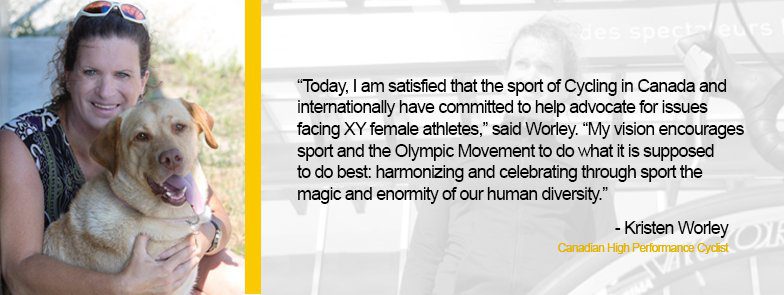Transgender cyclist Kristen Worley wins settlement in rights case
The UCI, the Ontario Cycling Association and Cycling Canada have all agreed to review and revise their policies concerning gender verification and TUEs


After Ontario’s human rights tribunal made a landmark ruling last summer in favour of Kristen Worley, the transgender cyclist, writer and advisory chairperson with the International Ethics and Research Centre can celebrate yet another landmark human rights victory—this time, thanks to a joint decision between Cycling Canada, the Ontario Cycling Association and the UCI.
Recently, the three cycling bodies agreed to adapt their policies regarding gender verification and therapeutic use exemptions (TUEs) concerning otherwise banned products.
For XY female athletes, the use of those products, such as testosterone, has long been a complicated matter. In Worley’s case, the gender reassignment surgery she underwent in 2001 meant that testosterone supplements were necessary when she attempted to return to cycling. The process of trying to acquire those supplements, though, involved a 10-month wait—not a matter of days or weeks—and when she received them, the provided dosage simply wasn’t enough.
Pursuing the matter as a human rights case, Worley argued that the standards set by major cycling bodies like the UCI don’t respect the diversity of riders.
Canadian court NOW recognises officially @iocmedia @wada_ama are committing 'Human Rights Violations' against female athletes. @hrw @UNESCO
— kristen worley (@kristenworley) July 19, 2017
In response, the three cycling organizations have promised to “review and revise” their policies in order to better embrace that diversity, something that will involve a campaign of education and awareness. Additionally, the Canadian organizations are advocating new standards and guidelines for XY female athletes, based on a solid, more objective scientific framework—and will take that case to the World Anti-Doping Agency, the International Olympic Committee, and others.
Worley herself applauded the decision.
“Today, I am satisfied that the sport of cycling in Canada and internationally have committed to help advocate for issues facing XY female athletes,” she said, as quoted by insidethegames.biz. “My vision encourages sport and the Olympic movement to do what it is supposed to do best: harmonizing and celebrating through sport the magic and enormity of our human diversity.”
